The world’s second-largest airline Delta will acquire 385 million gallons of a new, low-emission sustainable aviation fuel from emerging US-based supplier DG Fuels in a seven-year deal due to take effect from 2027. DG Fuels will produce the SAF from biomass feedstocks using a new process which it says will cut lifecycle greenhouse gas emissions by up to 85% compared to conventional aviation fuels. Unlike other SAF programmes, which DG Fuels says only consume a small amount of the carbon stored in feedstocks, its new system will use up to 97%, recycling excess CO2 to produce more SAF. “There’s not more carbon in the feedstock we use. We have developed a system that converts more of the carbon into SAF,” said DG Fuels President and CFO Christopher Chaput, who claims the process can produce three-to-four times more SAF from the same amount of biomass than its competitors.
Delta has been one of the most active purchasers of SAF, committing earlier this year to a massive 525 million gallons from renewable energy group Gevo for delivery over seven years from mid-2026. As well as increasing its SAF supplies, the new deal with DG Fuels aligns with a previous commitment by Delta to replace at least 5% of its conventional jet fuel by 2030 with SAF that reduces lifecycle emissions by at least 85%. The airline has also pledged that by 2030, 10% of its total jet fuel will be SAF.
“Achieving a sustainable future for travel will require us all to work together across industries and encourage innovations like DG Fuels’ new low-emissions SAF option,” said Delta’s Chief Sustainability Officer, Pam Fletcher. “SAF is essential to our industry’s more sustainable future, and new supply chain streams will help ensure sustainable fuel becomes more available and affordable.”
With soaring demand for non-fossil fuels and restrictions on the use of some controversial feedstocks, there is a growing shift to sources other than increasingly-expensive fats, oils and greases (FOGs), which are currently the most common bases for SAF. DG Fuels says timber waste will be used for Delta’s SAF, of which 55 million gallons will be delivered in each year of the agreement. Corn stover and cotton gin waste – the seeds surrounding cotton fibres – are also feedstock options for the fuel.
“Cellulosic biomass feedstock SAF is the key to scaled deployment that moves the needle for the aviation industry in reducing its carbon footprint,” said DG Fuels’ Chaput. “Delta is a known innovator in the airline industry, so we’re excited to work with them on implementing this long-term partnership.” As well as maximising carbon utilisation, DG Fuels claims its new SAF will offer 7% more energy density than conventional jet fuels, providing either greater flying range or higher payloads. “In the example of a fully-fuelled Boeing 747 aircraft, it would have an additional 17,500 pounds payload for the same range.”
DG Fuels intends to develop SAF production facilities in North America and Europe, with the first to be established in the US state of Louisiana. Site preparation will begin late in 2023, plant construction is expected to take three years, and the first fuel deliveries are expected by the last quarter of 2026. Initially, said the company, some excess CO2 might be sequestered until sufficient green power is available to scale up the conversion of syngas to liquid SAF.
As well as making it the biggest SAF customer for DG Fuels, this deal also progresses Delta’s Science Based Targets initiative (SBTi) goal to reduce its ‘well-to-wake’ scope 1 and 3 greenhouse gas emissions by 45% per revenue tonne kilometre by 2035, compared to 2019. The initiative has been developed to both define and promote emissions reductions goals that climate scientists believe are necessary for a 1.5 C degree future.
Late last year, Delta joined the First Movers Coalition, a public-private partnership and advocacy platform created to expedite and scale up the development of breakthrough technologies and fuels to help reduce the greenhouse gas emissions of hard-to-abate industries, including air transport. The initiative, led by the US State Department and the World Economic Forum, was announced during last year’s COP26.
Announcing the airline’s participation in the coalition, Delta’s Managing Director of Sustainability, Amelia DeLuca, said the advocacy group “will help spur the markets and policy environment essential to developing the sustainable fuels and technologies needed to combat climate change.” The airline is also a member of other climate change action groups including the Mission Possible Partnership, Clean Skies for Tomorrow, Aviation Climate Taskforce, and the LEAF Coalition, all intent on actions to help mitigate aviation’s contribution to global warming.
In addition to its SAF commitments, Delta has recently announced a major renewal of its narrowbody jet fleet, placing firm orders for 100 Boeing 737-10 aircraft for delivery from 2025. The airline also has options to acquire another 30 of the jets, the largest variant of the 737 MAX family, which the airframer says will be 30% more fuel efficient than older aircraft they will replace. Delta also recently introduced the first of 155 new Airbus A321neo jets, all of which are due to be delivered by 2027.
Photo: Delta Air Lines Boeing 737 MAX




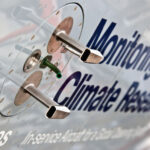



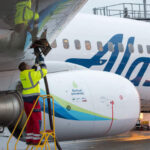
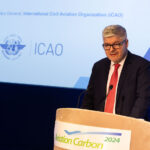

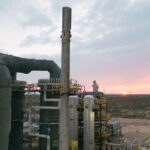

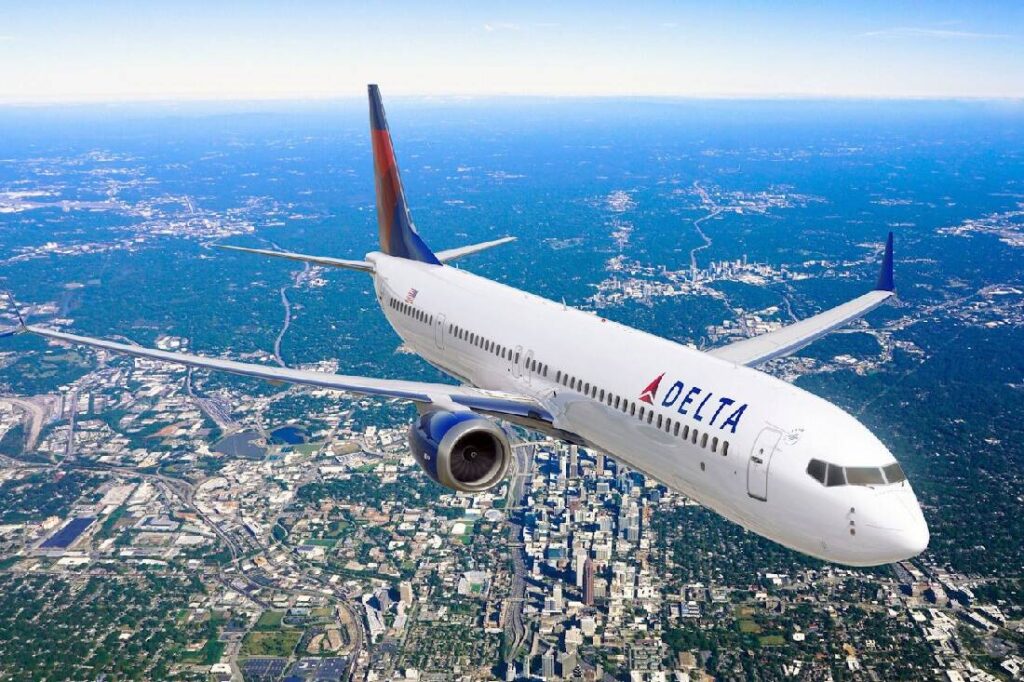

More News & Features
Progress on decarbonising the airline sector has been slow this year, says IATA chief
EASA releases status report on Europe’s SAF production and readiness to meet blending targets
Carbon reduction consultancy Watershed facilitates SAF certificate deals through SABA
New partnerships formed to drive e-SAF production in Nordic markets
IAG continues to go big on e-SAF as it inks 10-year offtake agreement with Infinium
US on the pathway to achieving its 2030 SAF Grand Challenge target, says DOE report